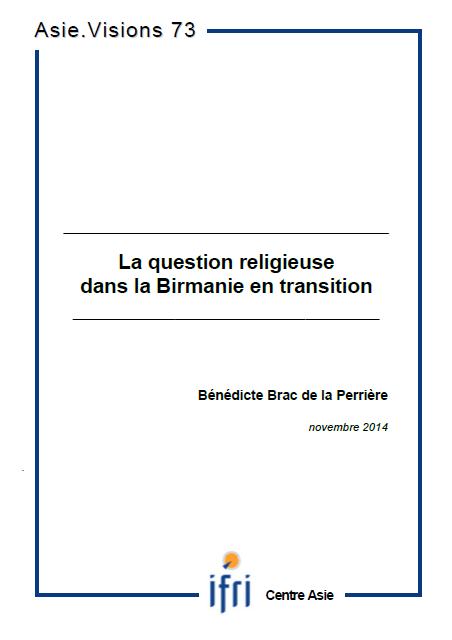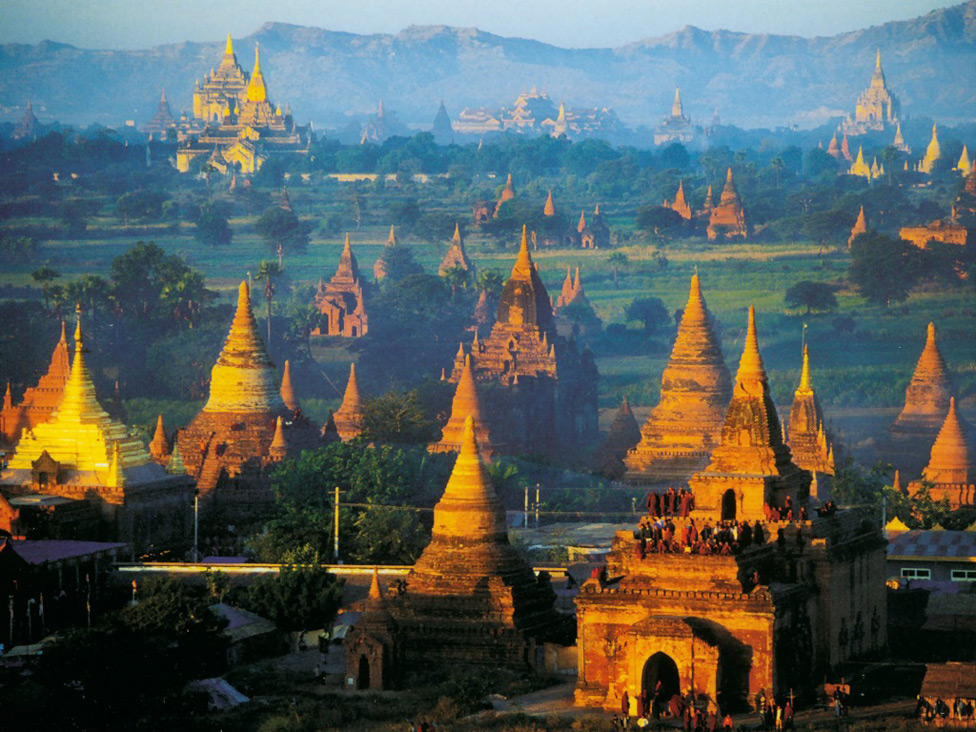The Religious Question in Myanmar’s Transition

In March 2011, after a half-century of relative isolation and autocratic military rule, Myanmar took the world by surprise in announcing an unexpected political transition. Less than two years later the emergence of aggressive Buddhist nationalism grabbed the spotlight. The epidemic of violence against Muslims that began with pogroms in June 2012 in the Arakan region of southwest Myanmar has now spread across a large swath of the country and is a testimony to the seriousness of this phenomenon. In a country with a large Buddhist majority, the presence of Muslims is now considered a threat.

This inter-communitarian crisis, which raises serious concerns for national unity, shows that the religious question has become a central issue in the country’s transition process. Moreover, what is now at stake is the place of the monastic order (the Sangha) within the broader national project. The Sangha were dismissed of the electoral franchise in the drafting of the country’s new constitution, even though they represent a considerable force both in number and value – counting 500,000 members, it is a force comparable to that of the army and continues to wield a considerable amount of influence. The country’s political liberalization has in effect brought about an intense mobilization of the Sangha on the political scene in the name of defending Buddhism. The aim of this study is to analyze the complex positioning of monks within the Sangha.
To understand the current situation, the study first turns to history and reminds us that political power in Myanmar has long had a symbiotic relationship with the Sangha. The religious question was a principal driver behind the emergence of Burmese nationalism in the 1920s and 1930s, with a number of monks figuring as prominent actors. Following independence (1948) and during the ensuing parliamentary period (1948-1962) the monastic order would continue to be a central actor. After the coup of Ne Win (1962), the religious policy put in place by the successive military administrations effectively brought the Sangha under control and made political, or even social action incompatible with religious status.
Nevertheless, even before the political opening of the country, a new generation of monks would mobilize and give themselves the means to be active members of society, independent of the military regime. The development of various social activities, such as mass sermons or the teaching of meditation to large, public groups, gave a number of abbots a greater degree of autonomy. As such, the Sangha would develop an ability to take initiatives that would ultimately allow them to massively reinvest the social and political spheres of society during the current transition period. In particular, the monks now consider the defense of religion as their responsibility and in this sense have positioned themselves as the guarantors of a Buddhist national identity. As such, they have reclaimed a fundamental place in society that the military had long deprived them of, and which, according to them, the current government is unable to fulfill.
It is in this context of monastic activism that anti-muslim violence has taken place. These riots have been fueled in effect by a massive preaching campaign, known as the 969 Movement, which calls for the boycott of shops owned by Muslims in the name of defending Buddhism. The monk Wirathu, who claims responsibility for the movement, embodies this extremist, religious nationalism. The predominant discourse on the necessity to defend Buddhism has also resulted in the creation of the Association for the Protection of Nation and Religion, or Ma Ba Tha. This religious organization promotes discriminatory Buddhist nationalism that is ultimately at variance with the complex composition of the country’s population. Moreover, it also seems at odds with the western conception of human rights in terms of individual liberties. Today, Ma Ba Tha has become an integral part of the monastic reshaping of Buddhist nationalism in Myanmar. Paradoxically, by removing the fabric of national identity from the hands of the military, political reform has enabled part of the monastic establishment to assume the responsibility of upholding its own interpretation of national identity.
Opposition to the invasive discourse of Ma Ba Tha does exist, but it is a muted opposition that is unable to fully express itself, as the critique of monks is a perilous exercise in Myanmar society. On this subject, this study analyses a document that once circulated within the Sangha entitled “Discourse addressed to the monks”, which appears now to be in opposition to Ma Ba Tha. In contrast to Ma Ba Tha, the text of the letter does not demonstrate any animosity against Islam, but it does adopt clear political positions, such as a demand for the right to vote, parliamentary representation and the recognition of Buddhism as the state religion. Its program is centered on the political status of monks and requires a notion of human rights to be applied to the monks.
Ultimately, by authorizing freedom of speech, Myanmar’s democratic transition has led monks to play a definite role in the political game, both for their own interest and for the sake of defending Buddhism. This development has enhanced a form of religious nationalism that can be seen as a defensive reaction to the newly introduced values of democracy and human rights. The crisis currently facing Buddhism in Myanmar today is that of the rise of discriminatory religious nationalism: it is a crisis of national identity, which positions the Sangha right in the middle of the country’s transition.
Bénédicte Brac de la Perrière is a Research Director with the CNRS and a researcher with the Research Institute on Contemporary Southeast Asia (IRASEC)
This paper is published in French only: La question religieuse dans la Birmanie en transition
Related centers and programs
Discover our other research centers and programsFind out more
Discover all our analyses
RAMSES 2024. A World to Be Remade
For its 42nd edition, RAMSES 2024 identifies three major challenges for 2024.
France and the Philippines should anchor their maritime partnership
With shared interests in promoting international law and sustainable development, France and the Philippines should strengthen their maritime cooperation in the Indo-Pacific. Through bilateral agreements, expanded joint exercises and the exchange of best practices, both nations can enhance maritime domain awareness, counter security threats and develop blue economy initiatives. This deeper collaboration would reinforce stability and environmental stewardship across the region.

The China-led AIIB, a geopolitical tool?
The establishment of the Asian Infrastructure Investment Bank (AIIB) in 2016, on a Chinese initiative, constituted an attempt to bridge the gap in infrastructure financing in Asia. However, it was also perceived in the West as a potential vehicle for China’s geostrategic agendas, fueling the suspicion that the institution might compete rather than align with existing multilateral development banks (MDBs) and impose its own standards.
Jammu and Kashmir in the Aftermath of August 2019
The abrogation of Article 370, which granted special status to the state of Jammu and Kashmir (J&K), has been on the agenda of the Bharatiya Janata Party (BJP) for many decades.






